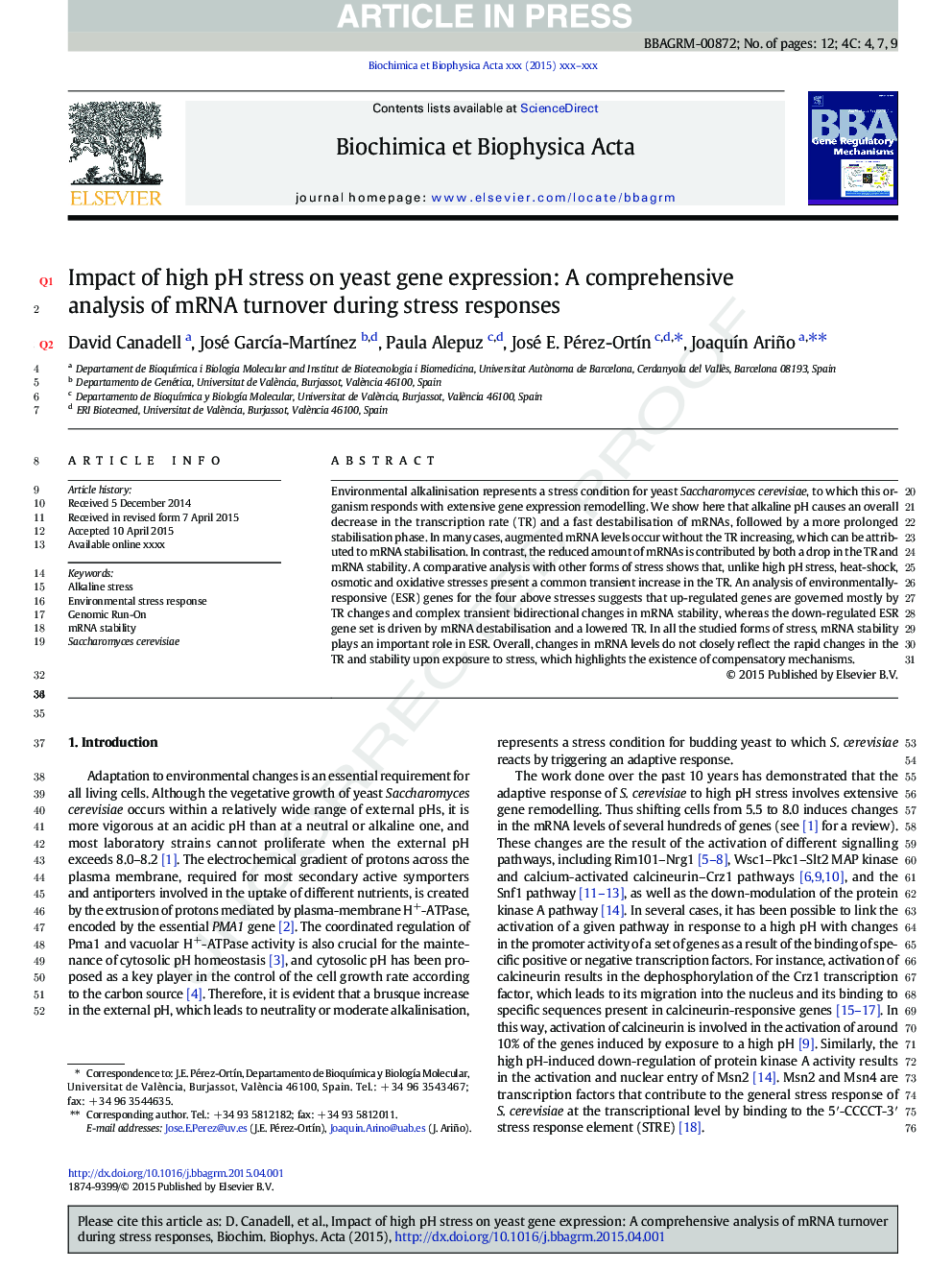| Article ID | Journal | Published Year | Pages | File Type |
|---|---|---|---|---|
| 10799096 | Biochimica et Biophysica Acta (BBA) - Gene Regulatory Mechanisms | 2015 | 12 Pages |
Abstract
Environmental alkalinisation represents a stress condition for yeast Saccharomyces cerevisiae, to which this organism responds with extensive gene expression remodelling. We show here that alkaline pH causes an overall decrease in the transcription rate (TR) and a fast destabilisation of mRNAs, followed by a more prolonged stabilisation phase. In many cases, augmented mRNA levels occur without the TR increasing, which can be attributed to mRNA stabilisation. In contrast, the reduced amount of mRNAs is contributed by both a drop in the TR and mRNA stability. A comparative analysis with other forms of stress shows that, unlike high pH stress, heat-shock, osmotic and oxidative stresses present a common transient increase in the TR. An analysis of environmentally-responsive (ESR) genes for the four above stresses suggests that up-regulated genes are governed mostly by TR changes and complex transient bidirectional changes in mRNA stability, whereas the down-regulated ESR gene set is driven by mRNA destabilisation and a lowered TR. In all the studied forms of stress, mRNA stability plays an important role in ESR. Overall, changes in mRNA levels do not closely reflect the rapid changes in the TR and stability upon exposure to stress, which highlights the existence of compensatory mechanisms.
Related Topics
Life Sciences
Biochemistry, Genetics and Molecular Biology
Biochemistry
Authors
David Canadell, José GarcÃa-MartÃnez, Paula Alepuz, José E. Pérez-OrtÃn, JoaquÃn Ariño,
